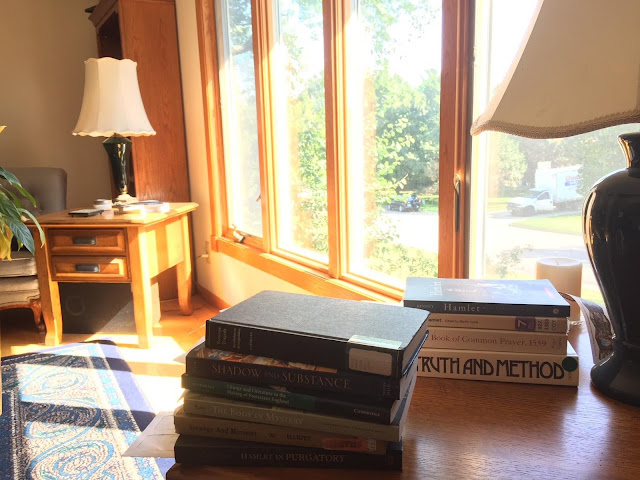HAMLET: PRIEST, PROPHET, & KING (part 1)

HAMLET: PRIEST, PROPHET, & KING (part 1) Shakespeare links Hamlet to an ancient tradition that viewed Jesus as priest, prophet, and king, which all Christians share by baptism. This came to be known as the “threefold office.” PROPHET: Like the prophet Nathan who tries to catch King David's conscience in a story, Hamlet attempts this with Claudius in a play. He later has a Jonah-like sea voyage, and his condemnation of Denmark's sins has been compared to language used by other prophets. Like John the Baptist, he opposes a king's incestuous marriage. KING: “It is I, Hamlet the Dane,” he says in the graveyard, revealing himself to the funeral party. Many believe Hamlet here claims his heritage as rightful king. He comes to terms with death and, after the sea-voyage, thinks Providence is on his side. PRIEST: “Let be.” / “The readiness is all.” In conversation with Horatio who is worried that the sword-duel may be a trap, Hamlet shows that he is ready to offer up his...
